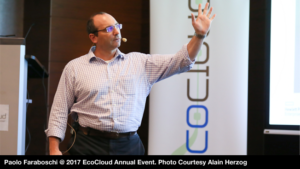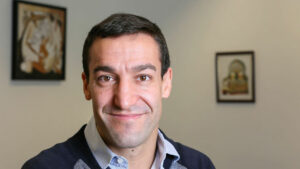Coming up: 2018 EcoCloud Annual Event
The annual mega event at EcoCloud is just around the corner. In little over a fortnight, the Lausanne Palace Hotel will be a buzz of activity as it hosts the two-day EcoCloud annual event, slated for June 18–19. The venue’s prime location, which offers panoramic views of the city, Lake Geneva, and the magnificent Alps, will be an apt setting for industry experts to share insights on budding data and cloud computing platforms.
EcoCloud Welcomes New Faculty Members
EcoCloud, the EPFL research center that drives today’s cloud computing technologies, warmly welcomes four new professors to its fold. They are Pascal Frossard, Carmela Troncoso, Robert West, and Paolo Ienne.
David Atienza wins IEEE TCCPS Mid-Career Award
Each year, the IEEE Technical Committee on Cyber-Physical Systems (TCCPS) recognizes outstanding scientific contributions under various categories, including the Early- and Mid-Career awards. The winners for 2018 have just been announced by the Committee. Among the awardees is David Atienza, associate professor of electrical engineering and director of the Embedded Systems Laboratory (ESL) at EPFL. He has won the Mid-Career Award for “sustained contributions to thermal processor design and medical wearables.’’


